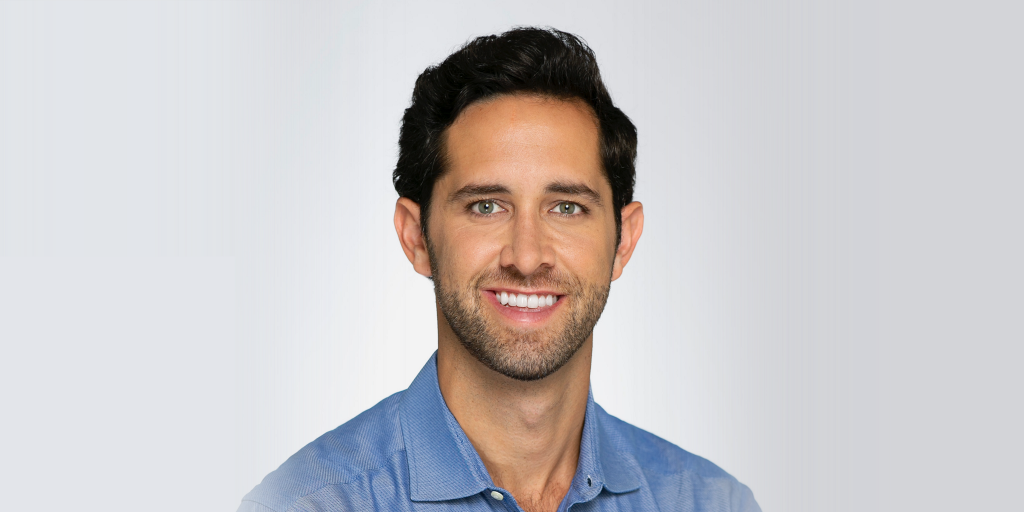
If you ask principals what their day-to-day looks like, you’ll get as many varying answers as there are personalities in this field. Adam Spivack joined Comcast Ventures in March of 2019. It took the editorial team until now (November 2019) to corner him for a quick 20-minute interview. The guy is busy. He’s on an aggressive self-inflicted schedule that involves researching industries, identifying companies and founders in those industries, developing investment theses — rinse and repeat. It’s this always-on information-seeking personality and curiosity that make him a great team member and partner for entrepreneurs.
Here’s what we got from Adam in an 18-minute interview with 2 minutes to spare.
It’s even better than what I expected. I am one of those people who always wonders how products like this are made, how they can be made better, who is the best to make them? (He grabs the squishy cat-shaped stress reliever off my desk to illustrate his point.) I consume a lot of content — everything from news, to venture, to tech and business publications, and podcasts. While I become a sponge on the market, I’m compiling a running list of interesting ideas, startups and entrepreneurs set to a schedule of who to reach out to and when… tomorrow, 3 months, 6 months, a year, etc.
It sounds a bit much, but I need discipline and focus or I’ll find myself running around with no end to the flood of opportunities out there.
There are thousands of inbound requests for meetings each year at Comcast Ventures. Trying to sift through opportunities and prioritize systematically is the daily challenge. The first 6 months have been about volume and repetition to improve pattern recognition and develop a better “gut feeling” about opportunities in a variety of sectors, including the ones I haven’t worked in before becoming a VC.
I spent the last six years leading strategy and operations teams at an AdTech company called FreeWheel, which Comcast acquired in 2014. While there, I casually got to know the Comcast Ventures team and was impressed with the team’s operating and investing acumen, as well as the platform that the fund was bringing to entrepreneurs. I knew that I’d eventually want to go back to working more hands on with entrepreneurs and serve as a bridge to the corporation and broader enterprise ecosystem. Our LP has more than 200,000 global employees and technology and entertainment content that connects millions of people. It’s what differentiates this firm from the others.
I’m starting to refine our investment theses in areas like enterprise automation and the application of machine learning and AI for sales, marketing, and customer care use cases across industries. We’re maintaining a balance of forming hypotheses on different markets and investing around those while being opportunistic around exciting companies and entrepreneurs.
What I’ve really enjoyed is building this community in my hometown of New York. There’s so much startup energy and momentum here, and collaborating with the startup and investing ecosystem here helps push innovation forward faster.

It’s pretty drastically different. For one, I’m spending the bulk of my time with entrepreneurs at their earliest stages in one-on-one settings. I came from a world where I was managing teams as an executive at FreeWheel and working within a 1500 person organization. A lot of my energy at the end was spent on setting up my team for success, and establishing and executing strategy.
Today, I spend a lot more time as a lone wolf looking for opportunities, but with an investing team that’s always there to bounce ideas off of, offer connections, data, and support. We have a great team here in New York with extensive experience in enterprise that I lean heavily on.
I think it’s important for investors to be flexible in how we work with CEOs. There will be times when companies and CEOs need us to lean in and hustle for them. Other times it’s more important to simply get out of the way and stay quiet, which can be the harder role to play. Having that intuition and not adding additional friction to an already stressful role as a CEO is something I’m constantly thinking about.
I’m also evaluating where my incremental effort will provide the greatest value addition or help ease the most pressing problem (i.e., don’t prioritize sales calls when the urgent need is hiring a sales leader). Going above and beyond what seems normal or comfortable in both contributing to portfolio companies and understanding their businesses at a granular level is a trust-earning first step I take.
In the long term, I’d like to look back at the founders I’ve partnered with and have them say, without hesitation, that I always had their backs and added more to their businesses and lives beyond support through financing. I hope they’ll feel that I would have done anything to set up the best conditions for their success. That is the critical human component to this role and what I build my foundation around.
My First Six Months in Venture was originally published in The Forecast on Medium, where people are continuing the conversation by highlighting and responding to this story.
© 2024 Comcast Ventures Terms of Service Privacy Policy Do Not Sell My Personal Information.